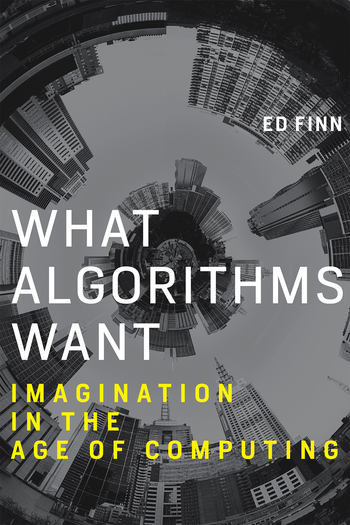As far as I know, this may be one of the first, if not the first, non-academic book marrying the subject of applied algorithms with the technique of "critical reading" from liberal arts, literature, English etc., and the result is not only interesting but should be part of the standard toolkit and views taken into account for people who work with and develop algorithmically-rich products on a regular basis. To be sure, the author does not discuss the technical nature of how to design algorithms with this or that property, but instead paints a path from formal computation, highlighting key concepts in these domains, paramount of which, the notion of effective computability, and show how these concepts are applied and mutated to impact culture and society at large.
In the case of effective computability, which basically means computable in some finite number of steps, the author shows how the desire to construct abstract procedures that are effectively computable, slowly became a practical metric of quality in applied computation, the runtime, and how this key constraint and view to understanding algorithms has informed and motivated how these procedures have been crafted for various use-cases, from gaming to prediction models/engines. What information is left out, which information is preserved, these decisions have in recent times, become not only technical requirements, but in a real sense value-judgements from the literary use of the word. Further, one could possibly infer much from these algorithm writers, or assemblers of code, based on their decisions on what item is left in or removed, altered, what is fudged, how it is fudged, how something is imputed etc.
The critique of the algorithm writer in this way is not only valid, but highly relevant in our world, as unlike aerospace engineers, the technical detail impacts the culture and society of the world in far more ways than just as a critical component of a consumer product, hundreds of millions of decisions are being made and aggregated every day that in some nontrivial way is impacting an individual life. Although this may have always been true in a decentralized societal network way pre-digital era, the magnitude of decision making was nowhere near as large, and there was not a small clique of authors "tipping fate" one way or the other with their creations. I suspect this interdisciplinary domain is rich with gold and serves as a place of fruitful computing and liberal arts research for decades to come, as well as inform society on the augmented and automated cultural transformation we are experiencing. In a way, we can view crafters of algorithms the same as crafters of literary culture, except instead of using a natural language like English, they are using the formal language derived from some logic.
My only recommendation for those who want to read this book is it helps to be familiar with the works of Neal Stephenson, specifically his book, Snowcrash, which is liberally referenced in the first 1/3 of the text.
The author hints that at some future time, we will have thinkers studying how Sim City developers chose to model poverty in their game, and how this impacted a generation of policy thinkers. I agree, and I'm excited to learn more of these impact so that we can better craft societally beneficial computation in the future. Highly recommended, full stop!

